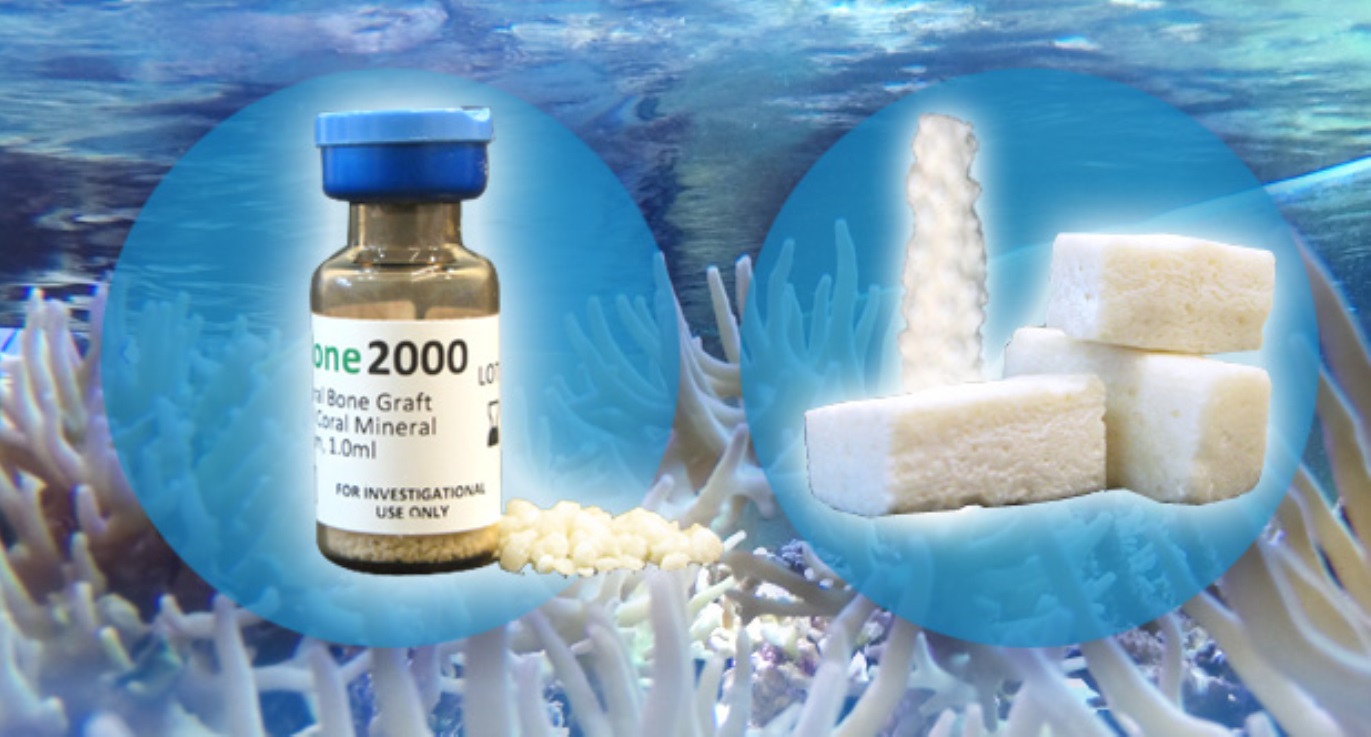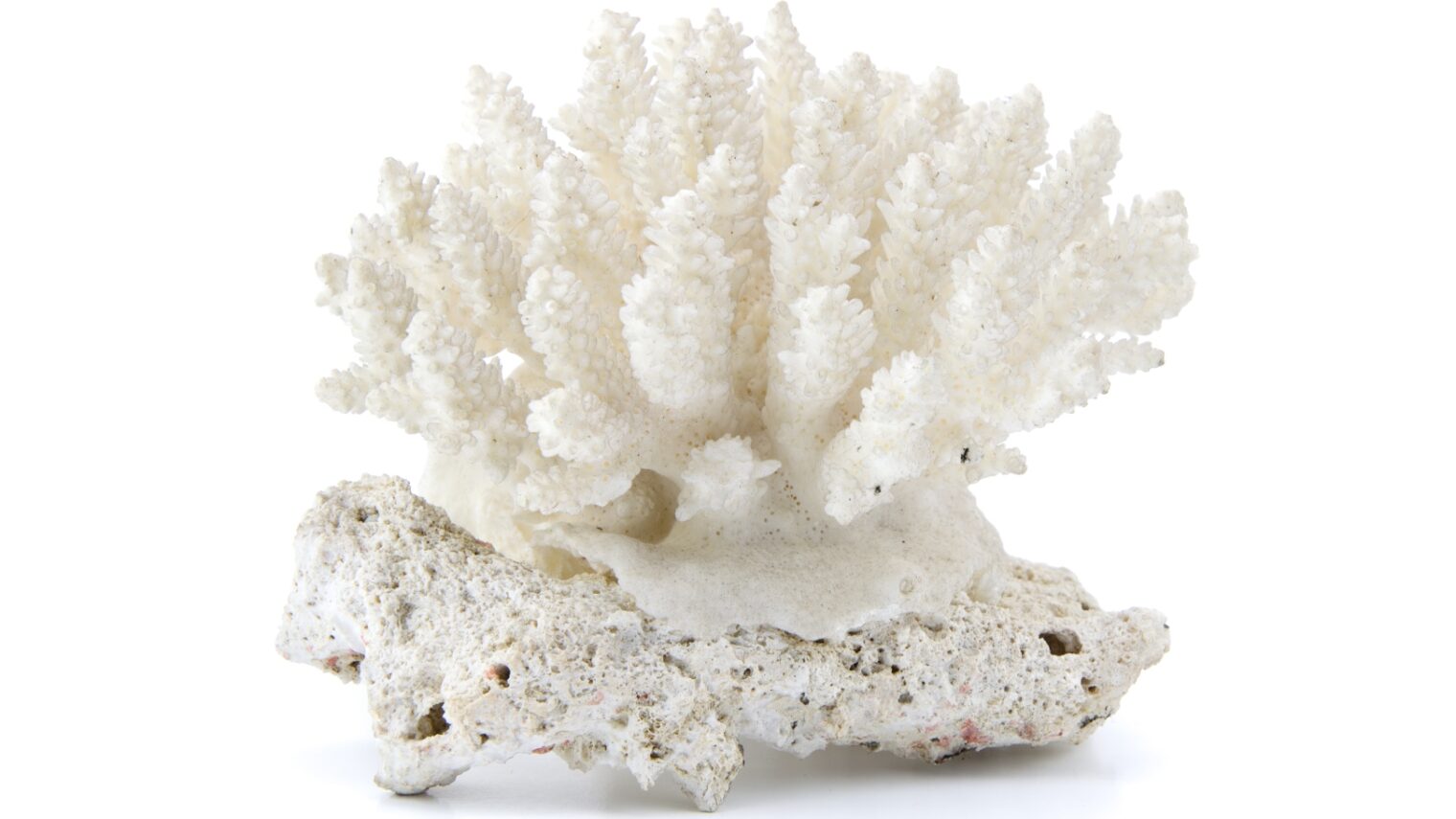An Israeli bone-graft product made of enhanced coral has received CE approval to start sales in Europe for dental and orthopedic procedures.
This unique product is made from corals grown in a closed system using patented technology to provide bioactivity and eliminate biological contamination.
Many practitioners and medical device companies have already contacted CoreBone to learn more about its advantages over currently available products for bone grafting, says CEO Ohad Schwartz.
“Bone grafts ideally should have four features,” he explains. “They must be bioactive, not just a passive scaffold, in order to attract new bone cells; they must be strong enough to support the site, especially for implants; they must allow for being replaced as new bone grows; and they must be porous to enable vascularity,” meaning that blood vessels can grow through them naturally and produce growth of bone from the inside out.
“If you have all those features, you have a very good bone graft,” Schwartz continues. “We have all of those.”

Some organic grafts from animals or humans also have those features but they pose a serious risk of rejection and transmitting disease. Synthetic grafts avoid these risks but are much weaker than natural bone.
Alternatives are in high demand as the global markets for orthopedic and dental bone-graft substitutes are expected to reach $3.4 billion and $1 billion, respectively, next year.
“Our product offers the best of both worlds, and therefore it is an optimal solution,” Schwartz tells ISRAEL21c, adding that a European study found CoreBone to be four times stronger than human bone.
Studies have demonstrated that CoreBone’s material has a high rate of bio-integration and connectivity with the host bone compared with leading products in the market, as well as almost complete bone healing within months.
Corals grown in the desert
CoreBone is made from the mineral exoskeleton of corals cultured in monitored aquarium systems and enriched with silica and strontium to add bioactive and osteoconductive (bone-cell-attracting) properties. The process is patented in the United States and Israel.
The corals are bred from selected species in a closed farm in the Arava desert, so they aren’t susceptible to marine pollution, contamination and endangerment. They also grow 10 times faster than in nature.
“All our products come from natural corals, but we engineer different ones for different indications because they differ in shape, strength and porosity,” Schwartz explains.
One of the most common dental procedures today is socket preservation after tooth extraction, accounting for 20 million cases in the US alone.
“If you don’t fill the cavity you will have major loss of bone,” he says. “The usual practice is to fill it with different bone graft granules. We found that one of the corals we grow has the exact shape and dimensions of tooth roots. So we’re using the natural design of the coral to find a solution for a major indication.”
Nature does the work
CoreBone was founded in December 2011 as a portfolio company of The Trendlines Group in Misgav, northern Israel.
The company has six employees and has raised about $2 million from public sources and private investors in Singapore, Israel and the United States. A new funding round is starting as the six-employee company goes into marketing mode.
Schwartz, the former CEO of two med-tech companies, Vaica Medical and Aspect AI, is cofounder along with Prof. Itzhak Binderman, an internationally recognized researcher in bone biology and dentistry who formerly headed the dental department and hard tissue lab at Tel Aviv Sourasky Medical Center and taught in Tel Aviv University’s School of Dental Medicine and department of bioengineering.
Schwartz says CoreBone’s products are undergoing ongoing clinical trials at Baruch Padeh Medical Center in Poriya, near the Galilee city of Tiberias.
These studies enable the company to launch its products in Europe and Israel; application to the US Food and Drug Administration is expected by mid 2017.
“We are planning to introduce CoreBone at major trade shows in Israel and abroad,” Schwartz says.
As for cost, the coral-based bone grafts will be priced comparably with average bovine-based bone grafts, which sell for about $100 per 1cc in the United States and are being used less frequently because of safety concerns.
“We can offer a very competitive price because nature does the work for us,” says Schwartz.
For more information, click here.














